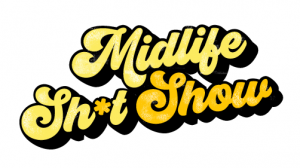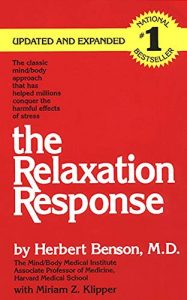“You can’t get too comfortable and relax, because your world can flip overnight.” Shawn Medes
Easy for a snotnose kid born in 1998 to say. Because clearly, his life experience is vast. Here’s the deal Midlifers, our inability to relax is doing crap in our bodies we really don’t need… especially at our age, dammit. Yes Shawn your world can flip overnight. But mindfulness and a well-honed relaxation response is some science-based mojo that helps us deal with that shit.
“The relaxation response is a physical state of deep rest that changes the physical and emotional responses to stress…” – Herbert Benson, MD
Dr. B there is a professor, author, cardiologist, and founder of Harvard’s Mind/Body Medical Institute. He may not have topped the pop charts in his early 20s but the dude did discover the Relaxation Response and its ability to mitigate our Fight Or Flight Response. Failure to get comfortable and relax puts us in a state where that fight or flight thing becomes our norm and that just isn’t good. What we need is balance, yo!
Getting into a simple practice of engaging mindfulness and that Relaxation Response, if even just for a while, can have an impact on our health. This isn’t just the hippy-dippy crap Lara regales Karin with on the daily. No crystals or chants, just REAL science
How Might Mindfulness and The Relaxation Response Impact Your Body?
- A decrease in your heart rate
- Lowers your respiratory rate
- A reduction in your blood pressure
- Slowed production of the hormone cortisol** (we’ll cover this in another piece)
- A decreased level of oxygen consumption
- Released tension in your muscles
- Lower pulse rate
*stress hormone
How To Engage The Relaxation Response
First and foremost, YOU CAN NOT SCREW THIS UP! Practice doesn’t make perfect it makes this gig feel more natural and gets you to your own personal Relaxation Response more quickly. Perfection is not the goal here overachieving GenXers! Yeah, we’re giving you mindfulness steps but they’re more like an outline than step-by-step instructions. Find what works for you best and you’ll get to deeper levels of your body’s own personal Relaxation Response.
- Create quiet, be that in the space you’re in or just sitting quietly wherever you are.
- Breathe deeply for 3-5 breaths. Counting to five as you inhale and again as you exhale.
- Close your eyes and continue breathing in the same pattern but now taking your inhalation breath through the nose and exhalation through the mouth. If counting to five is not comfortable to you, simply breathe in a slow manner that is.
- Let go of the focus on your breathing and turn that focus to your feet. Visualize the muscles relaxing. Slowly move that focus up the body from your feet to your head.
- Clear your mind of thoughts or try focusing on something that brings you joy or calm.
- Continue this calming practice for 10 to 20 minutes, ideally. But even just 5 minutes can bring benefits to your body.
- When you are ready, open your eyes but don’t focus on anything in the room. Just sit quietly for a moment or two. Just BE for a bit.
Want to read more from Dr. B?
The Relaxation Response
by Herbert Benson M.D.
{Amazon link}





